Gardening
People love gardens: being in then, looking at them, caring for them
For some it is a job; for others a passion or hobby.
Gardens are for all ages, and learning about or participating can be rewarding wherever you live in the world.
The Garden Industry is a major area of interest world wide.
People garden both as a hobby, and as a job.
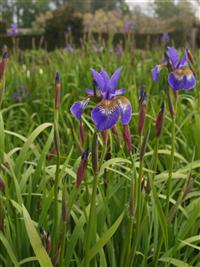
This web site can provide information for both professionals and amateurs.
See Below:
- Courses
- Books
- Advice for Home Gardeners
-
Advice for Starting a Gardening Business
1. Courses
ACS offers many distance education courses to develop skills in gardening. There are many different courses available; and sometimes the choice can be overwhelming.
If your time is limited and you simply want a sound foundation upon which to build your skills, three of the better starting points would be:
Option A For home gardeners: Home Garden Expert Course
Option B For people seeking their first job in industry: RHS Certificate 2
Option C. For people who are working already, but have not studied before; it is wise to start with a single module or short course such as the following. These can be then used as a credit toward a certificate or diploma if it is decided to continue studying after completing that first course.
Garden Maintenance
Horticulture I
Horticulture II (Plant Knowledge)
Horticulture III (Plant Health)
Practical Horticulture I
Practical Horticulture II
__________________________________________________________________
2. Books
See our Bookshop at www.acsbookshop.com
for a range of gardening books reviewed and recommended by our professional horticulturists.
The following ebooks are just some of those written by our principal (John Mason) and staff, and are available through the school's online bookstore. Click on a book for details
|
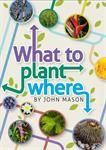
What to Plant Where
|
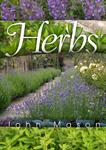
Herbs
|
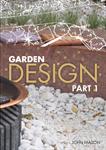 Garden Design Part 1 Garden Design Part 1
|
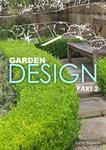
Garden Design Part 2
|
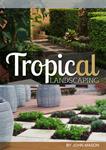 Tropical Landscaping Tropical Landscaping
|

Roses
|
__________________________________________________________________
3. Advice for Home Gardeners
Plant Care
The key to any successful garden is to understand plant care.
Healthy plants grow stronger, live longer and look better. Everyone wants their plants to be healthy, and with the right plants and the appropriate treatment, there is no reason why all of your plants can't look just as good as anything you would buy from a nursery.
When a plant becomes unhealthy, it's usually because the environment is unkind to it. The temperature may be too hot or cold, it might be too wet or dry, it may have too much or too little fertilizer, or perhaps something else is affecting it. Often a sick plant is found to be suffering from attack by a pest or disease problem; but those problems are far more likely to occur on plants which are already suffering because environmental conditions are not suitable.
The first step towards having healthy plants in a garden is to only keep healthy plants in the garden. If you are developing or redeveloping a garden consider the following:
‑Be careful to choose plants which are best suited to the particular soil and environment.
This might mean some "terrific" varieties should not be grown; but why grow such plants if they are never going to perform to their peak in that particular environment.
-If the client is determined to grow particular plants that are not suited to the local environmental conditions then consider ways in which those environmental conditions can be modified to suit such plants. For example, provide extra shade for shade loving plants using shade cloth.
‑Be ruthless and get rid of sick plants (or branches) before they become diseased and affect other plants.
WHY PLANTS GET SICK
Plants can get sick just as easily as people. The problems they encounter can include:
PESTS...Animals of various sizes and forms (from microscopic worms to dogs, birds, grazing animals, even humans). Insects are just one of many groups of animals which can cause damage to plants, although they are perhaps the most significant group of plant pests.
DISEASES...These are problems caused by living organisms other than animals. Fungi, bacteria and virus are the most common.
ENVIRONMENTAL DISORDERS....Troubles caused by soils, nutritional problems, bad weather conditions such as frost, wind, cold, heat, or poor drainage.
WEEDS...Plants growing where you don't want them. It is the location of a plant which makes it a weed, NOT the species of the plant. A weed will compete with your desired plants for nutrients, water and space, which can be harmful to your desired plants. They may also act as hosts to pests and diseases which can affect your desired plants.
__________________________________________________________________
4. Common Problems for a New Garden Service Business
There are many common mistakes made by people operating garden service businesses. Some of these are listed below:
* Advertising that you will do anything (when you don't have the skill or the equipment to do many gardening jobs).
* Under quoting when you first start your business.
You are best working on an hourly rate (at least until you become familiar with what you are capable of getting done in a given time).
* Not including overheads in a quote.
It costs you time and money to travel to a job, to supply tools, office costs, equipment maintenance costs, to give a quote in the first place, etc. All of these costs have to be covered.
* Wanting to get a job no matter what the terms are.
There are plenty of people who think gardeners should be cheap labour; there are others who think cheap gardeners are not good gardeners. You should not be afraid to lose a job because you are too expensive. Someone else may just hire you because you're not cheap.
* Liquidity Problems.
Some types of garden service jobs require you to have a certain amount of cash in hand. If you are not paid for a landscape job until weeks or months after doing the work, you need to have sufficient money in hand to carry you for that period. If your work is seasonal, you need to save enough in the good times to keep you going in the bad times.
* Not being clear in what you are going to include in the job.
Clients may expect free garden maintenance after a landscape job. Some people expect free removal of rubbish after a pruning job. Some people expect you to come back and spray again for free if your first pest or weed spraying doesn't work. Some people expect the roots removed as well as the top of a tree when you quote on tree removal, or for all of the wood to be cutup into short blocks suitable for fire wood. Clearly state EVERYTHING that is to be included on the job and don't feel pressured to do more than you contracted for.
MAKE SURE THE CLIENT UNDERSTANDS WHAT YOU WILL OR WON'T DO!
____________________
GARDEN HINTS
DISEASES IN PLANTS ARE SIMILAR TO DISEASES IN PEOPLE!
Many of the treatments we use on ourselves can also be applied to plants.
If a plant is seriously diseased, it is always best to be isolated from other plants to stop the disease spreading (this is easy to do with pot plants – just move them away from other pot plants!)
When a disease (or pest) has spread deep inside a plant; the best way to apply a chemical may be through a drip (similar to an intravenous drip we might have when we are in hospital). This slowly applies chemical to the sap system (which is like our blood system); and the sap then carries it throughout the entire plant (see photo of a drip applied to a diseased palm). Alternatively a systemic pesticide may be needed.
Plants are able to fight disease far better if their general health and nutrition is in good condition. We take vitamins when we are sick. Often a sick plant will recover faster if it is pampered a little, such as being fertilised, well watered, and if the plant is in containers, re-potted and placed in protected conditions.
HOW TO GET MORE OUT OF HOEING
Torpedo Hoes are very flexible tools, with cutting edges both on the back and front of a long blade that comes to a point at each end. The blade will cut weeds when pushed, or when pulled through the soil and turned on its end, the point can be used to chip at a weed and get into smaller areas compared to other types of hoes. The blade shape can vary from one brand to another, but once you get used to this type of hoe, you can become very efficient at weeding.
PLANTS GROWING ON BUILDINGS
It looks great to have a climber growing up the wall of a house. It also helps insulate the building, but it can cause problems. Any plant will keep the house wall moist, and this can lead to wood rots and mould (spores of which many people are allergic). Some types of plants can grow into cracks then push bricks or wood apart as they slowly grow in size. In warm or hot climates the problem can be more severe. Avoid plants such as Ivy (Hedera helix), Boston ivy (Parthenocissus sp.), Creeping fig (Ficus pumila), or trim them at least every 6 months. Any plants on buildings, in any location should be inspected regularly to ensure they are not damaging the building
COPPER SPRAYS
Copper is a natural fungicide, and is a relatively soft option if you are worried about chemicals. It will control a wide range of fungal diseases including Black Spot on Roses and Peach Leaf Curl. There is a wide range of copper-based sprays available (e.g. Yates Leaf Curl Spray and Multicrop's Kocide). All are effective in their control of disease, though they may vary a little in how you use them and what they cost. Whatever you choose to use, it will be good value for the money you spend.
Some plants that often benefit with a copper spray include:
- Roses - to stop black spot developing (even if you don’t have black spot, you are likely to get it in humid areas – selecting disease resistant species helps.
- Peaches and nectarines – controls leaf curl and shot hole
- Beans - controls a range of problems including rust blights and leaf spots.
- Tomatoes - controls leaf spots, canker and blight
- Hippeastrums - reduces damage caused by red blister disease
You may also be interested in....